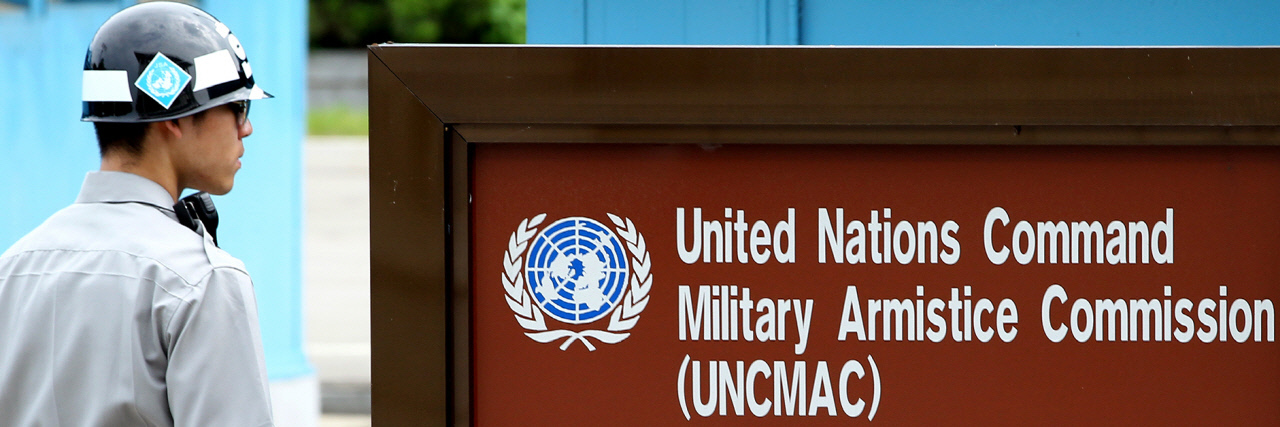UNC refutes allegations of hindering Tamiflu delivery to N. Korea
By YonhapPublished : Dec. 3, 2020 - 11:03

The US-led United Nations Command (UNC) on Thursday rebutted allegations that it blocked South Korea's attempt to send antiviral medication to North Korea last year.
South Korea tried to send 200,000 doses of Tamiflu to the North in early 2019 as a follow-up on an agreement between their leaders to closely cooperate in fighting the spread of infectious diseases. But the plan never materialized.
In a recent media interview, Gyeonggi Province Gov. Lee Jae-myung said the influenza medication could not be delivered as the UNC blocked the movement of trucks across the border.
Unveiling a timeline of events surrounding the failed delivery, the UNC said the report that it blocked the shipment of the medication goods across the military demarcation line (MDL) is "false."
"The fact remains that UNC rapidly approved Military Demarcation Line crossings for the delivery of Tamiflu," it said in a statement.
According to the UNC, the command gave the green light to the shipment one day after South Korea filed the request and renewed the approval every day until Seoul notified the command of its cancellation of requests to cross the MDL on Feb. 1, 2019.
The statement came as some critics called for improvements in the UNC's handling of entry requests to the Demilitarized Zone (DMZ) separating South and North Korea, saying it hampers cross-border exchanges aimed at boosting ties between the two sides.
Last month, US Forces Korea Commander Gen. Robert Abrams, who also leads the UNC, rejected speculation the US might be planning to use the multinational command to maintain the American military's influence on the Korean Peninsula after Washington's envisioned transfer of wartime operational control of South Korean troops to Seoul.
"United Nations Command is not a warfighting command," he said. "There is no plan, secret plan for the UNC to somehow be a warfighting or operational headquarters in the future." (Yonhap)
South Korea tried to send 200,000 doses of Tamiflu to the North in early 2019 as a follow-up on an agreement between their leaders to closely cooperate in fighting the spread of infectious diseases. But the plan never materialized.
In a recent media interview, Gyeonggi Province Gov. Lee Jae-myung said the influenza medication could not be delivered as the UNC blocked the movement of trucks across the border.
Unveiling a timeline of events surrounding the failed delivery, the UNC said the report that it blocked the shipment of the medication goods across the military demarcation line (MDL) is "false."
"The fact remains that UNC rapidly approved Military Demarcation Line crossings for the delivery of Tamiflu," it said in a statement.
According to the UNC, the command gave the green light to the shipment one day after South Korea filed the request and renewed the approval every day until Seoul notified the command of its cancellation of requests to cross the MDL on Feb. 1, 2019.
The statement came as some critics called for improvements in the UNC's handling of entry requests to the Demilitarized Zone (DMZ) separating South and North Korea, saying it hampers cross-border exchanges aimed at boosting ties between the two sides.
Last month, US Forces Korea Commander Gen. Robert Abrams, who also leads the UNC, rejected speculation the US might be planning to use the multinational command to maintain the American military's influence on the Korean Peninsula after Washington's envisioned transfer of wartime operational control of South Korean troops to Seoul.
"United Nations Command is not a warfighting command," he said. "There is no plan, secret plan for the UNC to somehow be a warfighting or operational headquarters in the future." (Yonhap)

















![[KH Explains] Hyundai's full hybrid edge to pay off amid slow transition to pure EVs](http://res.heraldm.com/phpwas/restmb_idxmake.php?idx=652&simg=/content/image/2024/04/18/20240418050645_0.jpg&u=20240418181020)

![[Today’s K-pop] Zico drops snippet of collaboration with Jennie](http://res.heraldm.com/phpwas/restmb_idxmake.php?idx=642&simg=/content/image/2024/04/18/20240418050702_0.jpg&u=)